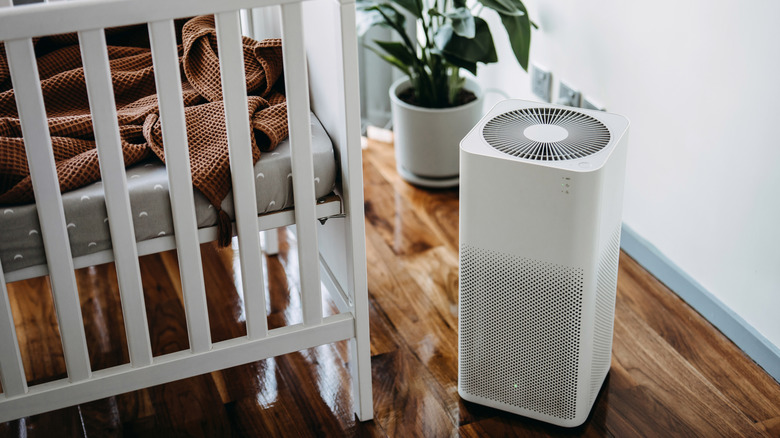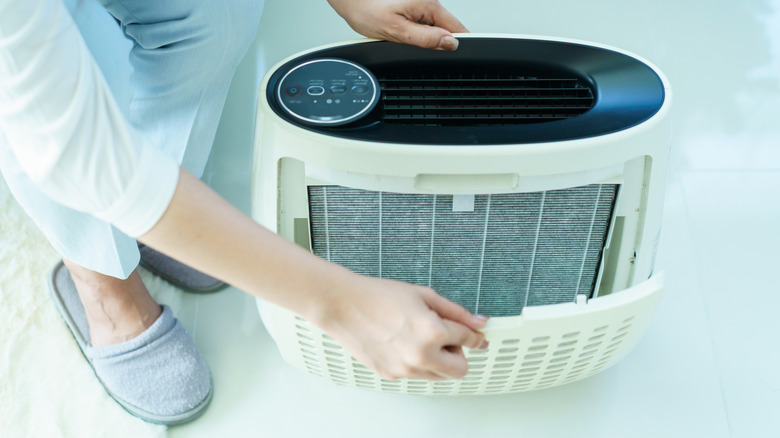Dealing With Dust? Here's Why An Air Purifier Could Be A Game-Changer For Your Home
We may receive a commission on purchases made from links.
Dust is everywhere — on your shelves, under your bed, floating in the air like it owns the place. No matter how often you clean, it always creeps back, settling into every corner before you even put the vacuum away. But dust isn't just an eyesore, it's a troublemaker. It can trigger allergies, worsen asthma, and irritate your lungs, making your home feel less like a sanctuary and more like a sneezing contest.
In the battle against dust, many people wonder: can an air purifier help? First, you need to understand how air purifiers work. These little machines do their magic by pulling in air, trapping particles and pollutants in a filter, and pushing out cleaner air. They're great at tackling smoke, mold, and pet hair. But what about dust? Could an air purifier be the secret weapon against this relentless invader?
Good news, the answer is yes! Air purifiers with the right kinds of filters are able to capture tiny dust particles from the air. They won't eliminate dust entirely, and they can't remove dust after it has accumulated on a surface. (Sorry ... there's still no magic solution to avoid cleaning altogether.) Nonetheless, they can make a big difference for allergy sufferers caught in the endless dust battle. So if you're looking for an extra layer of defense, an air purifier — especially one with a HEPA filter, like this GermGuardian air purifier – might be just what you need.
Which air purifiers can remove dust from the air
Air purifiers are awesome, but let's be real: not all of them are created equal. Different types use different air filtering technology, and some are air purifiers are more popular or effective than others. If you're looking for one that tackles dust, you first need to understand what dust actually is.
Dust particles are tiny — about 10 microns in size. Struggling to picture that? You're not alone. Think smaller than a grain of sand or even pollen. Dust being so small is exactly why it's bad for your health, because it can easily sneak into your lungs. That's why you need an air purifier that's seriously good at trapping the tiniest of particles from the air.
Enter the HEPA filter, short for high-efficiency particulate air filter. Experts often recommend these because they can capture 99.97% of airborne particles as small as 0.3 microns, according to the Environmental Protection Agency. That means dust, mold, bacteria, and pollen don't stand a chance. Even then, not all HEPA filters are the same. Some need replacing every six months to keep working effectively (of course you only need to change the filter, not the whole air purifier). So before you buy a new machine, do a little research, compare models, and make sure you're getting the best and most efficient dust-busting HEPA air purifier for your space. This might be the next thing you need to help you clean your dusty house!

